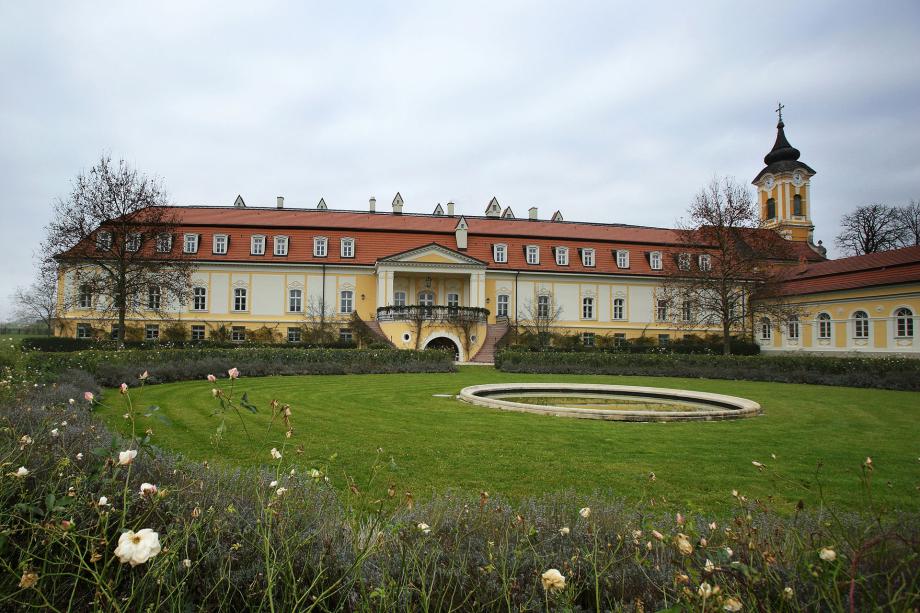Château Béla Forum Unlike Others

Château Béla is beautifully located on the hills overlooking the Danube river which constitutes a border between Slovakia and Hungary. With its history and splendid architecture, the castle and extensive wines, Béla embodies what is most precious in the legacy of the Austro-Hungarian empire. Here the ethnic identities intertwine, and sharp cultural distinctions cease to matter. Tradition of viticulture dates back to the Roman Empire. This bucolic landscape is a perfect setting to discuss the topic of Central Europe.
Lest anybody get sentimental, the reality bites rather quickly. Some individuals will join only digitally. Not many people fly planes these days, especially between America and Europe. In-person participants have to undergo multiple COVID tests, especially when crossing borders from Hungary or Austria. Strict health protocol is a painful reminder that the society is at war with the virus. There is no escape from disinfectants and protective masks.
Indeed, this year’s Château Béla Strategic Forum comes at a very special moment. A long year is drawing to a close. People are weary, yearning after normal lives, anxious to step out of the COVID-19 shadow. It seems that this upcoming Christmas and New Year celebrations will be subdued and far from festive.
They say it is the darkest right before the dawn. Scientists and politicians are already promising some breakthroughs as test trials of three vaccines have gone better than expected. Hope is in the air, but this hope is laden with sad realisation that it will take years, if not decades, to restore normality.
There are interesting new developments to chew upon.
One big question is what long-term impact the pandemic will have upon geopolitics, societies and political systems. As our big MEGATRENDS 2020 report showed earlier in the year, some consequences of the pandemic go far beyond immediate effects, say fiscal or administrative, of measures carried out in a fire-fighting mode of the war. Think of the digital revolution and green agenda which will determine the quality of the post-pandemic recovery. Fortunes of populists might fall or rise, as citizens demand their leaders to deliver security and prosperity in much harsher external environment.
Moreover, as The United States is emerging from the Trump era, there is a big debate about new impetus for strengthening of the Transatlantic Alliance. How the outgoing president departs matters not only for the quality of American democracy but to all the West. The president-elect’s statements regarding “the summit of democracies” suggest that the upcoming administration will be more activist internationally, with a greater role of multilateral international organisations. How the West reacts to ever more belligerent and assertive China and Russia, will determine the character of the post-pandemic world order.
Closer to home, Central Europe is more divided than ever. Hungary and Poland threatened a veto on the EU multiannual financial framework and the Recovery Plan. It is hard to predict how the situation will unfold but the debate over the rule of law is very fundamental to what the EU is (or is not) to its members, including governments and societies. Slovakia has a key role to play here, as a partner and a friend of its neighbours to the north and south, but also as a country wholeheartedly embracing values of democracy and rule of law. The Visegrad Four might have outlived its original purpose as the grouping seems to crack into two parts.
In few years from now many people will probably look back at December 2020 as the moment in time when the slow but steady process of rebuilding battered economies and healing of societies began. It is possible that the Château Béla Strategic Forum – through deliberations of its participants – will have contributed to defining the contours of this post-pandemic world.

Senior Associate Fellow